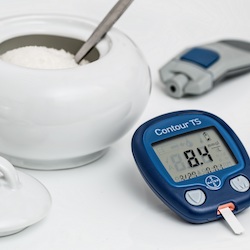 Kim Stewart
Kim Stewart
Re-emerging Virus Enterovirus D68 (EV-D68) Linked to Paralysis of Children
A cluster of children from Colorado in the USA have been treated for muscle weakness or paralysis that may be connected to a nationwide outbreak of a usually rare respiratory virus called enterovirus D68 (EV-D68), one of more than 100 non-polio enteroviruses. The study, published in The Lancet, highlights theRead
Dark Chocolate Improves Walking in Patients With Peripheral Artery Disease
This interventional study measured the acute effect of dark chocolate on walking distance autonomy (WDA), artery dilatation and NOX2‐mediated oxidative stress in a population affected by moderate‐severe. Previous studies with antioxidant infusion provided evidence that oxidative stress is implicated in impairing WDA, while its inhibition was associated with maximal walking distance (MWD) improvement. In PAD patients dark but not milk chocolate acutely improved walking autonomy with a mechanism possibly related to an oxidative stress‐mediated mechanism involving NOX2 regulation.
Diabetes is Five Different Diseases, Concludes a Lancet Study
Diabetes is five diseases, concludes a new study. By separating adult-onset diabetes cases into five different types, rather than just type 1 or type 2, physicians can better tailor early treatment for patients, and could represent a first step towards precision medicine in the disease, according to an analysis ofRead
Call Now to Urge Congress to Advance Whole-Person Integrative Healthcare
Today’s Practitioner is calling on our readers to support the Integrative Health Policy Consortium’s (IHPC) upcoming caucus in Washington DC. A few months ago, we asked for your letters to support Whole Person Integrative Healthcare Caucus. “We are so grateful for the thousands who wrote to your elected leaders,” said KimberlyRead
Elimination Diets Turn Off GERD Symptoms
A simple blood test for food intolerances could go a long way in relieving patients of uncomfortable and potentially dangerous gastro-esophageal reflux disease (GERD) symptoms. This study presents a unique and non-invasive testing method to identify food intolerances, which could reduce symptoms by as much as 50%, without the use ofRead
Is Cupping Therapy Effective Among Athletes?
Swimmer Michael Phelps’ continued dominance at the 2016 Rio de Janeiro Olympics was accompanied by worldwide awareness of cupping. Cupping therapy has re-emerged as a potential approach to boost post-exercise metabolic recovery, reduce pain, and improve range of motion by increasing local microcirculation. But what does science tell us aboutRead
Lomatium Dissectum Inhibits CXCL10, Linked to Influenza A
The Journal for Restorative Medicine shows that Lomatium dissectum may provide an option to for integrative care specialists for influenza A. The plant is native to the Western US and is traditionally used in the Native American culture to treat influenza. During the 1918 flu epidemic, it was reported thatRead
Clinical Combo Powerhouse: n-3 PUFA & ɤ-Linolenic Acid in Patients with Rheumatoid Arthritis
This study explores the combined effects of marine n-3 polyunsaturated fatty acids (PUFA) and ɤ-linolenic acid (GLA) as anti-inflammatory agents to help in the treatment of inflammatory disorder of rheumatoid arthritis. Shifting the Pathological Changes of Rheumatoid Arthritis Rheumatoid arthritis (RA) is one of the most common autoimmune disorders. TheRead
Mechanism for Calorie Restriction Discovered
A new study led by Harvard School of Public Health (HSPH) researchers identifies a key molecular mechanism behind the health benefits of dietary restriction, or reduced food intake without malnutrition. Also known as calorie restriction, dietary restriction is best known for its ability to slow aging in laboratory animals. TheRead
Statement from CRN’s Duffy MacKay, N.D. in the Value of Omega-3 Fatty Acids and Heart Health
In Jan. 2018, the Journal of the American Medical Association published a study, “Associations of Omega-3 Fatty Acid Supplement Use With Cardiovascular Disease Risks.” The study received a number of negative media reports citing that Omega-3 fatty acids do little to reduce the risk of cardiovascular disease. In response toRead














